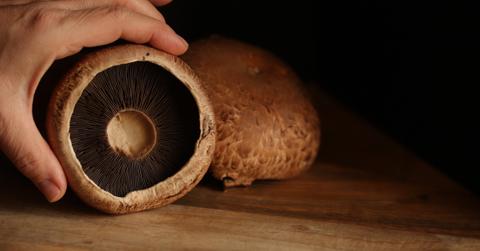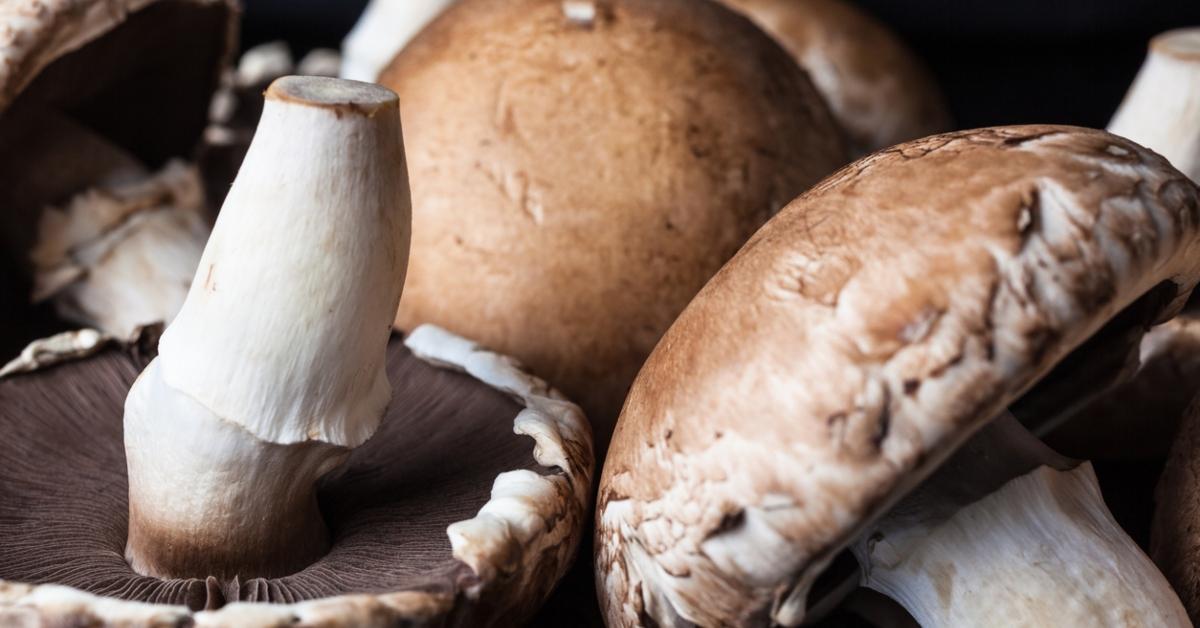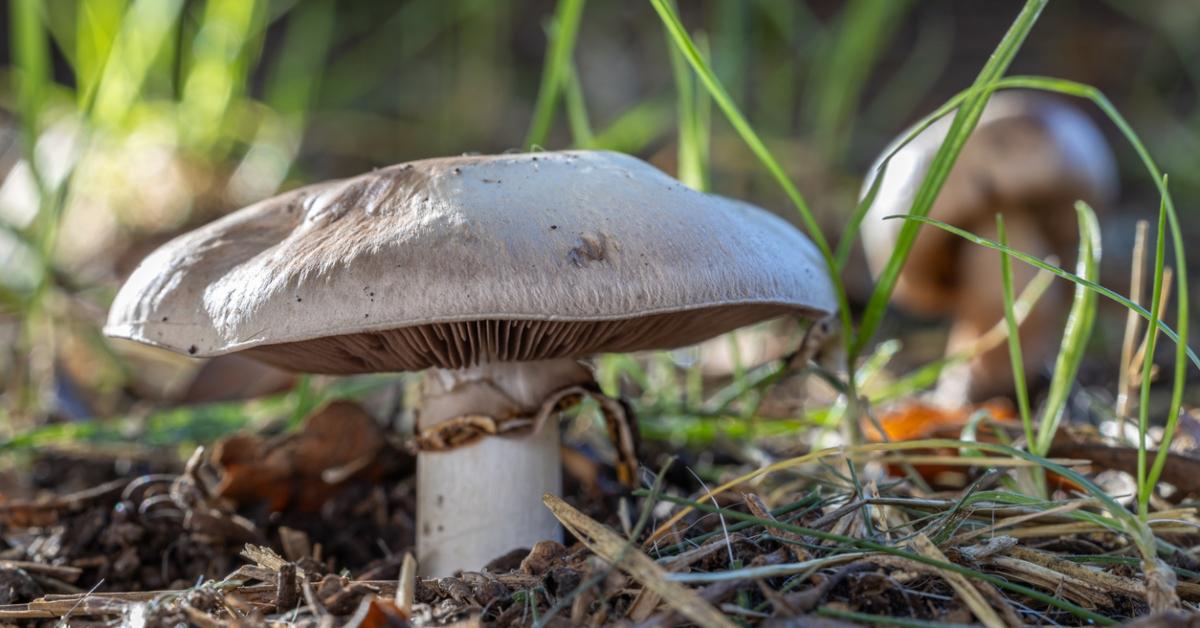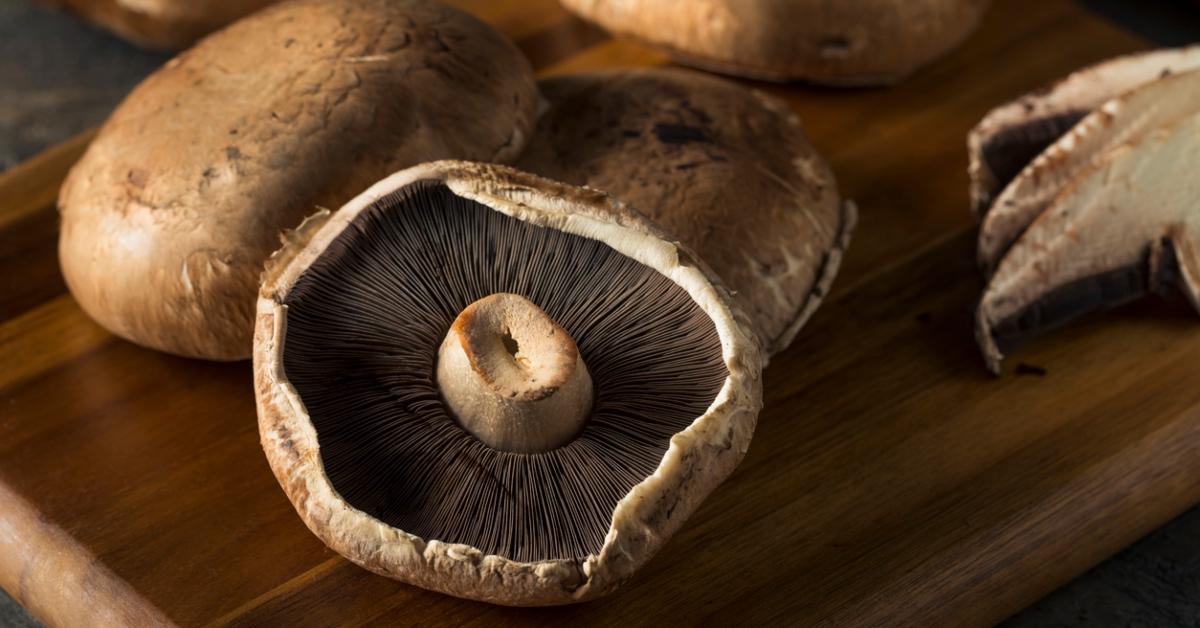Are the Rumors True? Here's Why Some People Think Portobello Mushrooms Can Cause Cancer
Despite what you hear, portobello mushrooms have not been proven to cause cancer in humans. In fact, they might actually be used to prevent it.
Published April 29 2024, 3:12 p.m. ET

It’s no secret that mushrooms are a major point of contention in the wellness and nutrition world. While some praise the medicinal magic of portobello mushrooms, others label them as a cancer-causing danger.
There is an overload of wellness advice on the internet, and it can be hard to discern between fact and fiction. However, looking at the research, there is not enough evidence to support the claim that portobello mushrooms cause cancer. Let's take a deeper dive into why people thought portobello mushrooms were dangerous in the first place, and where the rumor may have started.

Can portobello mushrooms cause cancer?
Many dietitians, mycologists, and researchers have differing opinions when it comes to portobello mushrooms, however, there is not sufficient evidence to suggest they cause cancer.
The main concern is agaritine, a compound naturally found in several mushroom species that some studies have flagged as a possible carcinogen. In 2017, mycologist Paul Stamets appeared as a guest on the Joe Rogan Experience Podcast and warned that eating raw portobello mushrooms could be a health risk. When asked to expand, he told Rogan, “This is an explosive area of conversation, and that puts my life in danger, so I reserve the right not to answer your question.”
However, this kind of language could cause many people to swear off portobellos for good, which is why it’s important to break down the research. Scientific experiments studying the cancer risk of agaritine have been going on for decades, and most studies have been conducted on mice.

There were some studies done throughout the 1970s and 80s that found that agaritine caused some organ mutations and a rise in tumors in mice. However, it’s important to note that these mice were given an extremely high dose of raw mushrooms, the equivalent of a year’s worth each day, per Fix Your Gut.
According to Trail Runner Magazine, there isn't enough research to support that eating raw portobello mushrooms would have the same effect on humans as it did on mice. And even then, it's doubtful someone could eat enough mushrooms daily to match the dosage done in the studies.

Portobello mushrooms might actually prevent cancer.
Some studies actually support the use of mushrooms as a cancer preventative. A 2021 study found that eating more mushrooms decreased the risk of cancer, especially breast cancer. The study found that eating 18 grams of mushrooms daily decreased cancer risk by 45 percent.
According to Penn State Health News, mushrooms—including portobellos—are high in ergothioneine. This antioxidant helps with cellular defense, which could explain the anticancer benefits. Because of these findings, more research will be done to study the effects of mushroom consumption on specific cancers.
Beyond these possible anticancer benefits, eating portobello mushrooms could also provide mental benefits. According to WebMD, a 2019 study found that higher mushroom consumption led to a 52 percent lower risk of mild cognitive impairment (MCI) in Chinese older adults.
Eating portobello mushrooms could also be good for your gut. Portobello mushrooms contain polysaccharides, a carbohydrate that helps build healthy gut bacteria, which could provide overall intestinal and immune benefits, per WebMD.